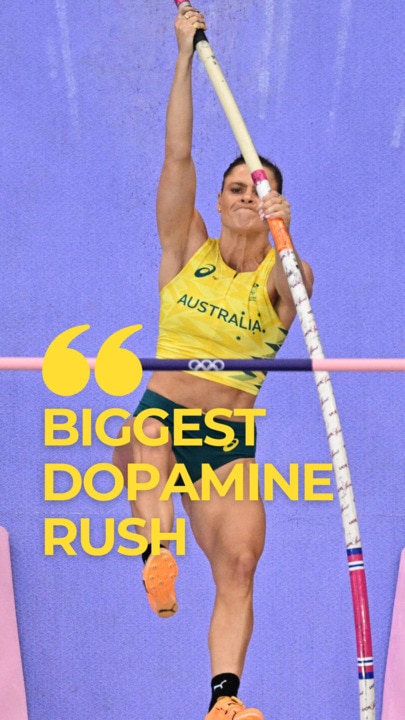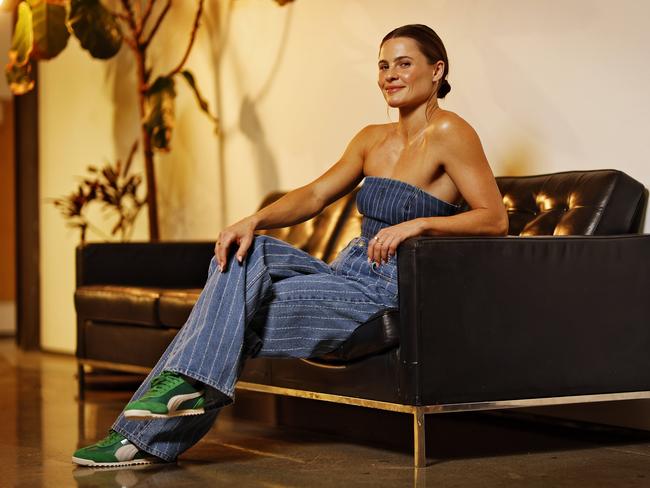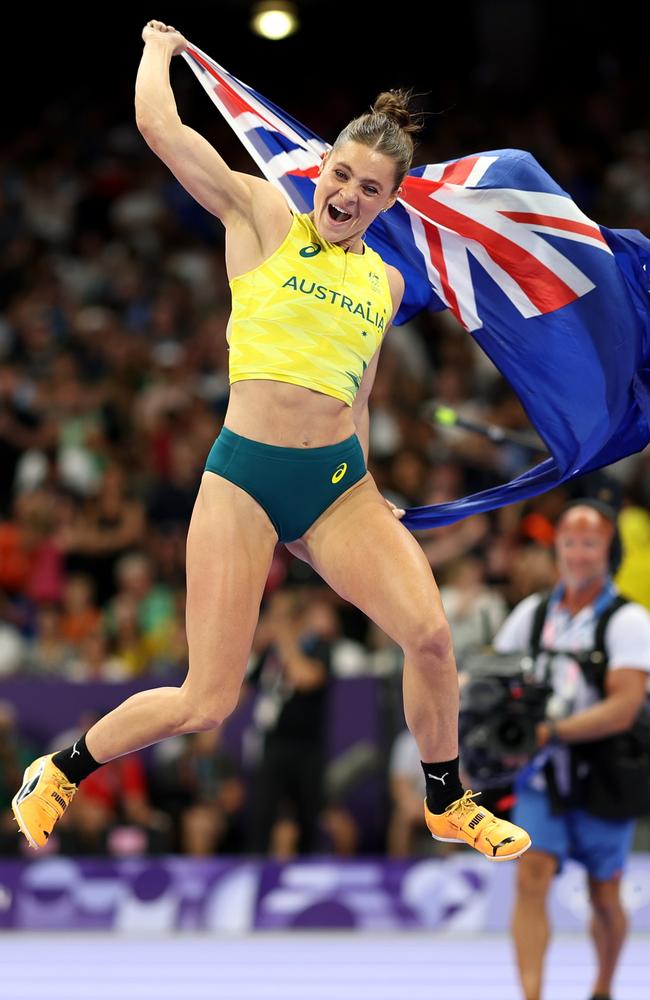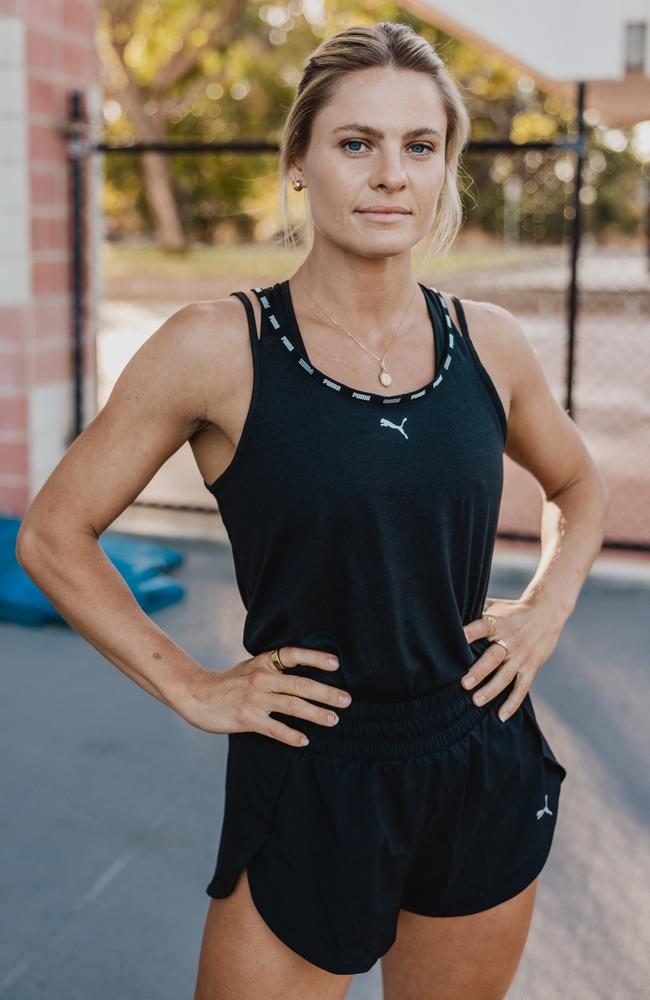Australian Olympian reveals harsh reality of being a top athlete
An Australian Olympic champion has revealed what life is really like in the spotlight after finding herself in an unexpected struggle.

Confidential
Don't miss out on the headlines from Confidential. Followed categories will be added to My News.
It is the stark reality of life as a professional athlete — there is no time to soak up your success as you’re already worrying about the next big event.
That’s a point made by Aussie Olympic champion Nina Kennedy after her triumphant gold medal win at the Paris games this year.
“I’ve just won the Olympics and I’m already thinking about LA and becoming a double Olympic champion,” Kennedy said in the latest episode of the Mental As Anyone podcast.
“We’re so addicted to this ... I don’t know what it is, it is this extreme pressure and extreme highs and just riding them. It is such a cool freaking job and I feel so privileged to do that but in the same sentence, I’m so addicted to it. We all have something, don’t we?”

Kennedy, 27, was one of the standout success stories of the Olympics, winning gold in pole vault at 4.90m. What made her performance all the more impressive was the fact Kennedy competed in Paris with stress fractures in her back.
The previous Tokyo games, she jumped while injured and placed 12th overall in her qualifier.
Speaking candidly about the toll elite sport takes on your mental health, Kennedy said there were a number of questions she had to ask herself that helped move forward at times she wasn’t sure she could.
“I’ve definitely kind of gone through stages of, you lose, you kind of interpret that as, you’re a s**t person, or you’re not good enough and you shouldn’t be doing sport, you’re never going to reach those goals,” Kennedy explained.

“And I really had to separate the two of self worth tied up with my performance and once I kind of separated those two and again, really went back to my mental health, I had to (ask), who am I? Why am I doing this crazy freaking sport, and what do I want to get out of it?”
She continued: “They were essentially three really hard questions I asked myself. It took a few years to figure out, I felt like I was on this constant journey of figuring out what I was doing. And I think once I had that clarity, my mental health definitely cleared up. I guess I kind of had this weight lifted off my shoulders and I could continue this sport that I loved without this pressure of, if I lose, I’m s**t. It was like, those two are completely different things, and I’m going to do this sport because I love it.”
Perth-based Kennedy is in the reflection stage of life after the Olympics, with some athletes referring to the ‘blues’ they experience after a major event.
“It is about learning and growing and I am sure this coming year would be filled with, how do you deal with that pressure of being the Olympic champ, right?” she said.

“I wouldn’t call it the blues. I guess how I describe it to people is like, I put every single egg I had in one basket, and if that meant not winning the Olympics, it’s like placing the riskiest bet you’ve ever done, and betting on it for four years, and then it paying off. It is like the biggest rush of dopamine you could ever experience. I don’t want to say I’ve had to come down, but I’ve definitely ... it is like, what do I do now? You have to work that out. I think the gold medal definitely made it easier not to have that, that blues feeling.”
Kennedy has indicated that breaking the world record of 5.06m held by Russian Yelena Isinbayeva from 2009.
“A lot of people have different reasons for doing their sport, it changes season to season, but I’ve really proved to myself that if I can set a ridiculously high goal and I can achieve it, then why not dream even bigger?” she said.
“That’s one side of it, but another side of it is, I could get injured tomorrow and I could never pole vault again so, yeah, you want to kind of roll the dice, see what happens.”
* A new episode of Mental As Anyone drops each Tuesday morning.





